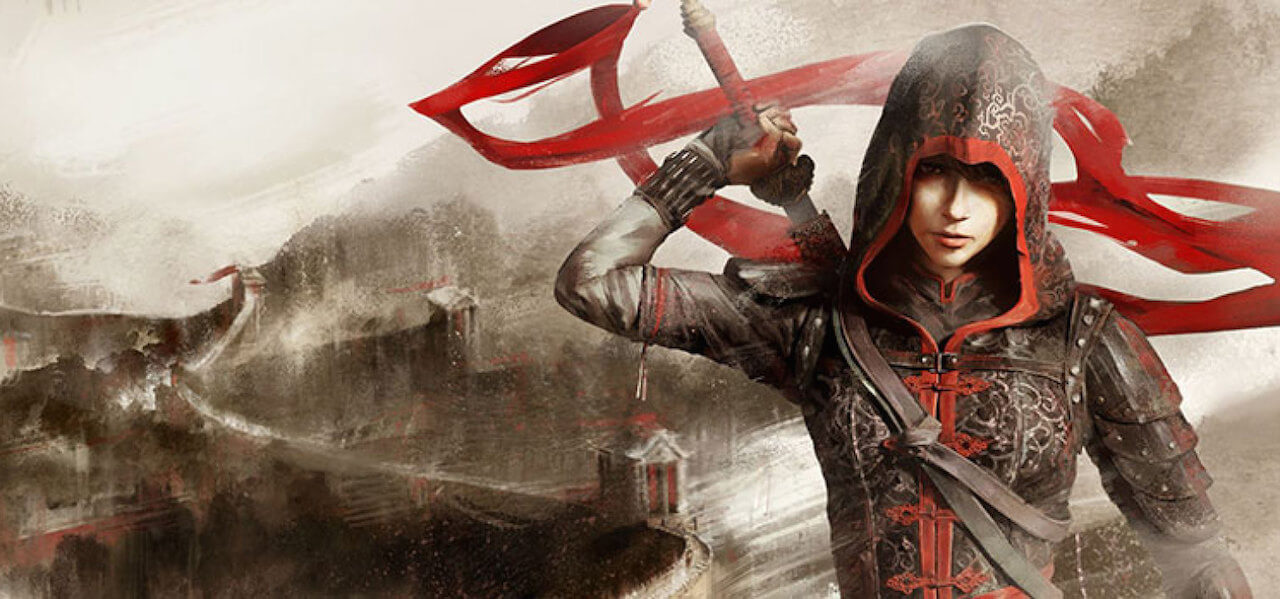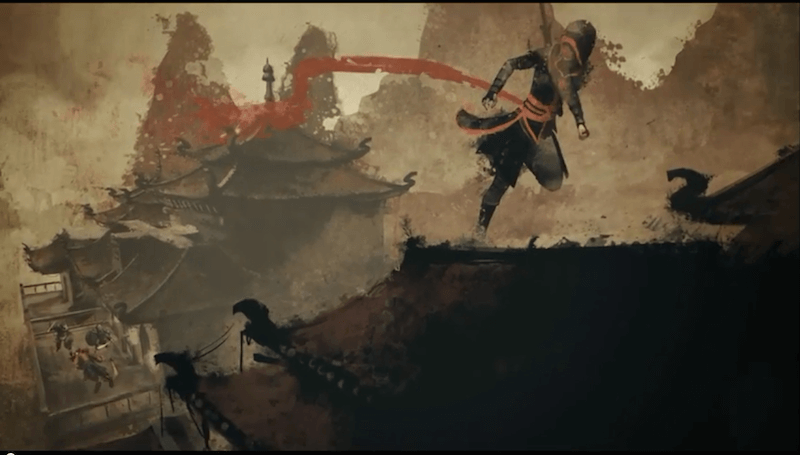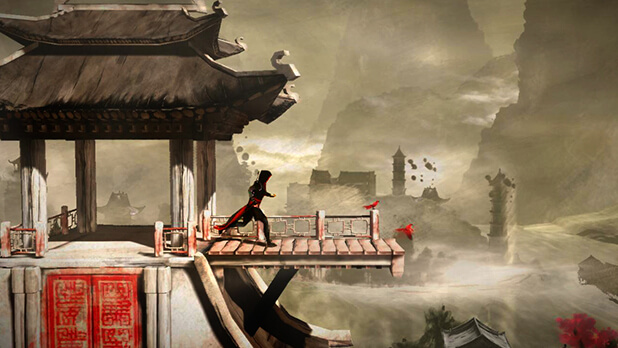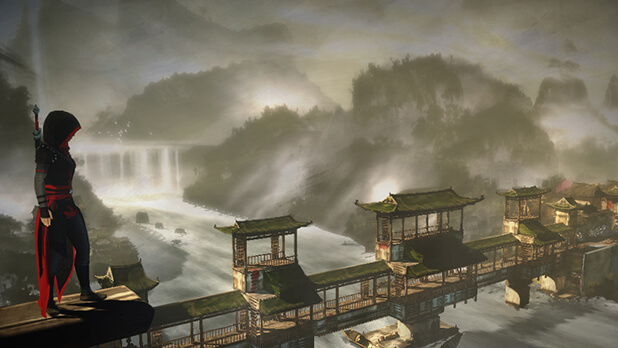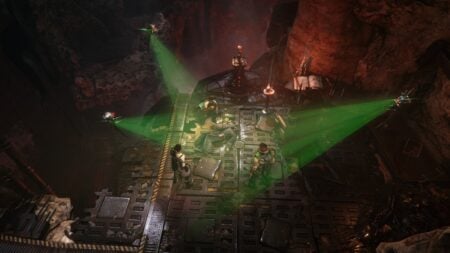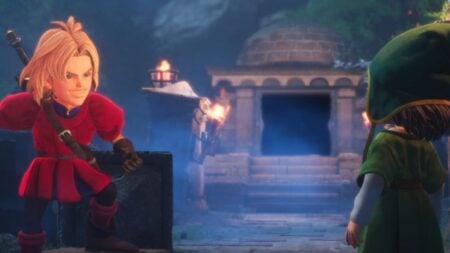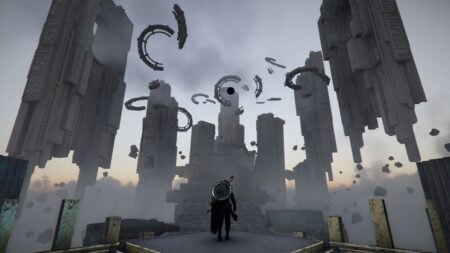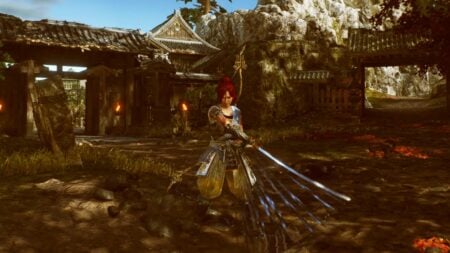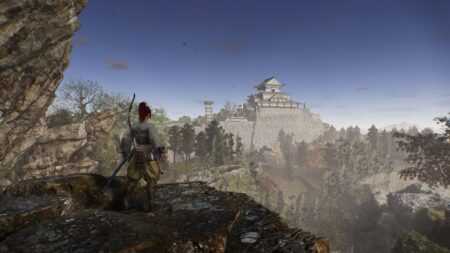It’s been bothering me for months now.
One thing is clear: Why fans purchased Assassin’s Creed Chronicles: China. The traditional brush painting and 16th century Chinese setting created a visually gorgeous sidescroller (a first for the franchise) starring female Assassin Shao Jun (also a first) on her quest for revenge against Zhang Yong’s “Tigers” (a group of eunuch Templars) who are responsible for massacring all Shao Jun’s fellow Assassins (except one, her mentor).
Sounds like a promising story. Hence the love part of our love-hate relationship.
Despite all the creative fodder that characters like Altan Khan, the Jiajing Emperor, and Empress Zhang offer as flavor for Shao Jun’s tale, nothing memorable was done with them or her, contrary to Assassin’s Creed style. Even if it’s not one of the AAA’s main entries, ACC: China fell flat, and the disappointment was major.
Hence the hate part of our love-hate relationship.
And maybe we could leave it at that and bury the hatchet, but when someone’s looking back at the crazily popular (there’s no denying it) Assassin’s Creed franchise someday, seeking inspiration, it’s impossible that no one will press the question, Why would Ubisoft get so lazy with a beautiful sidescroller that could have been the first of many? ACC: China could easily have marked the beginning of an entire new branch and era in the franchise, and what a richer and more perfect setting for an Assassin’s story than eastern Asia, land of foggy mountains and wicked architecture?
Finding a fan-prioritizing, non-monetary, non-industry-political reason for the creators of ACC: China to not write a decent narrative to drive the action and plot, given the rich Chinese history they had at their fingertips, is impossible. Even George R.R. Martin wouldn’t know what to do with all of it.
Really, the story-rich moments of intersection between Shao Jun’s tale and history are innumerable and astoundingly exploitable for crafting better storylines. One tale in particular, sans its very early date, fits perfectly into Shao Jun’s quest. It comes to life in the brief description of Lv Zhi, also known as Empress Lv, written on Chinawhisper.com:
“Lv Zhi or Empress Lv, was the empress of Emperor Gaozu Liu Bang, who established the Han Dynasty (206 BC–220 AD). Lv Zhi was widely known as a ruthless and cruel empress. After Emperor Gaozu’s death she put her most hated Concubine Qi to death in a extremely cruel manner.” And in this case of Lv Zhi, the concubine Qi could have easily been Shao Jun, given her backstory, and she could have escaped. It’s just one intersection in history that could have worked miracles for ACC: China. The text goes on: “She also poisoned Qi’s son Liu Ruyi to death.” So, motive for Shao Jun breaking away, joining the Brotherhood, and struggling with justifications of revenge? I think so. You can’t say either that learning to accept past pain has nothing to do with how she rebuilds the Brotherhood.
“However, in governing the country, Lv Zhi was a capable woman. She dominated the political scene for 15 years and adopted the policy of ‘Governing by Doing Nothing.'” In other words, in becoming the leader of the Assassins, our female lead’s version of leadership could be set up against Lv Zhi’s. So now we have a deeper value/ moral to drive the story, especially if Lv Zhi or the emperor is a Templar. “She also encouraged common people to collect books and restored many old books.” If interest in old books doesn’t scream Assassins Creed to you, I don’t know what does. Come on! It’s begging you to turn this story into an Assassin’s Creed game. “Her policy laid a good foundation for the later prosperity during the reigns of emperors of Wen and Jing.” So it seems “good” and “evil” are not strictly assigned to one side in this tale, if Lv Zhi’s cruelness has positive effects? Does that change how we look at the slaughtering of the Brotherhood? Or could this “good foundation” be the result of Assassin interference in her reign ultimately overpowering the unstoppable Lv Zhi?
Perhaps because of the extreme date differences (200 BC and 1500 AD aren’t exactly close), Lv Zhi wouldn’t be compatible with Shao Jun, who is set in the Ming dynasty era (probably to justify the clothing styles, the weaponry, and historical Chinese landmarks like the Great Wall of China, and so on). Nonetheless, I can’t keep myself from wondering: If more passion and effort had gone into creating this narrative (with all its video game-specific elements), what would have been the effect? Would it affect trends in other franchises or inspire new developers to emulate it? If ACC: China’s potential wasn’t squandered, wouldn’t we be asking for a sequel (and, Ubisoft, be willing to spend more money on you)? I open all these questions and thoughts to you in the comments.
I’m personally not done with the escape from European settings, or from an ex-concubine lead. (The insane) part of me still wants to ask for a redo on ACC: China. The rest of me is holding my breath to see how Syndicate and the upcoming Assassin’s Creed films turn out. I never thought I’d say this, but this kind of wasted potential is a crime against art, not to mention slightly insulting to the consumers. Even if the crew working on Assassin’s Creed Syndicate and the upcoming Assassin’s Creed film don’t include a single person who worked on Assassin’s Creed Chronicles: China, I can’t help but feel nervous about what will take priority: profit or quality. Let’s hope they both take the franchise on an uptick.

